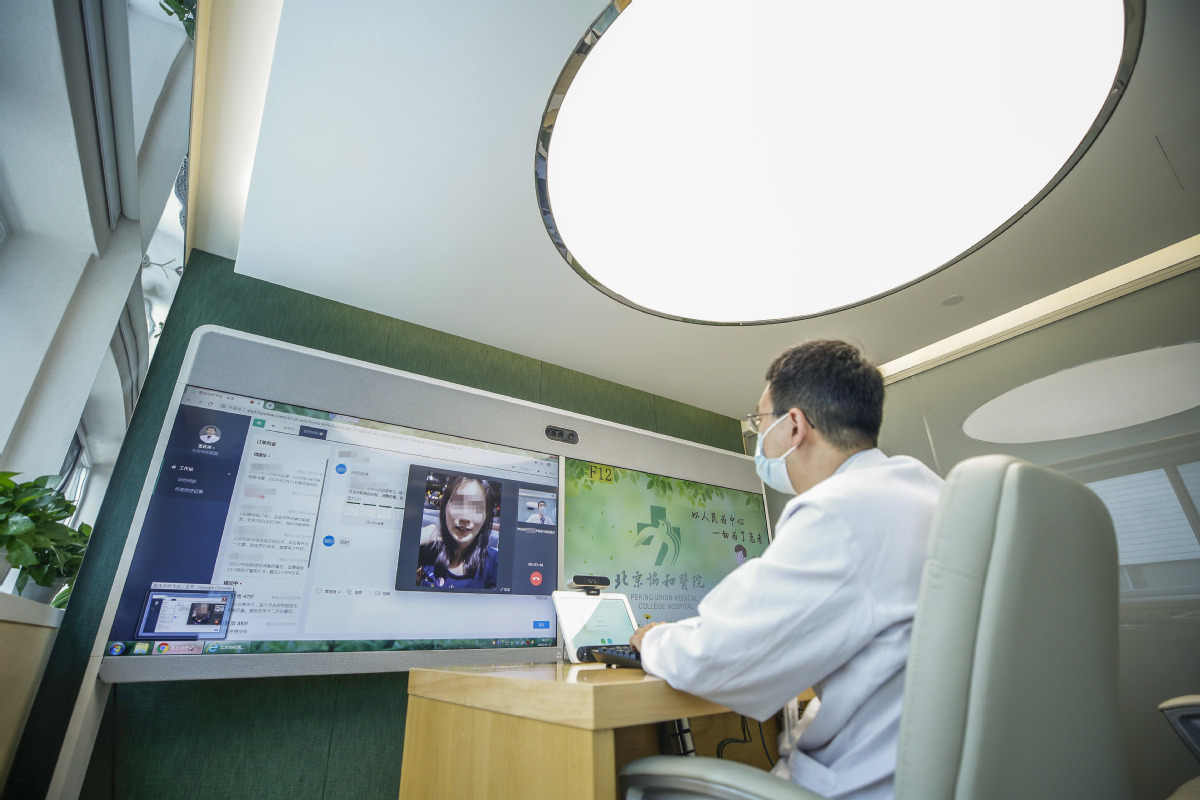E-prescriptions set new medical era's pulse racing


Amid COVID-19, online healthcare services acquire dimensions of sunrise industry
Influenced by the novel coronavirus pneumonia, China's internet-based healthcare services will likely serve over 60 million users this year with a penetration rate of nearly 8 percent, and pull in sales revenue in excess of 700 billion yuan ($98.7 billion), said a recent industry report.
The figure of 60 million users is a post-COVID-19 update to the previous estimate of 59 million by Shanghai-based big data institute MobTech.
"In the past, Chinese patients used to have little trust in internet healthcare. The COVID-19 epidemic has brought many patients who would normally prefer physical hospitals to online medical platforms.
"By consulting with a doctor online, they had a better-than-expected user experience, which turned out to be excellent market education for online hospitals, bringing great growth potential to the sector," said the report.
At a news conference late last month, Lei Haichao, Party secretary of the Beijing Health Commission, said 29 hospitals in the national capital alone have jumped on the online services bandwagon.
According to Lei, by May 11, some 96 medical institutions in Beijing had provided technical assistance via the internet to nearly 200 medical groups in other regions, including Hebei and Shandong provinces and the Inner Mongolia autonomous region.
Liao Jieyuan, founder of WeDoctor Primary Care, told media that his was the first hospital in Beijing to receive license in 2019 for online medical diagnosis and treatment. Patients from across the country now receive services from WeDoctor's renowned medical experts and specialists in Beijing.
Chen Qiaoshan, a medical analyst at Beijing-based market consultancy Analysys, said that the online doctor-patient relationship based on trust is fundamental to the development of internet healthcare. During the COVID-19 combat, as most of the potential and confirmed cases flocked to physical hospitals, those who planned to see a doctor tried doing it online.
As the novel coronavirus outbreak intensified in China in late January, Chinese internet-based medical service providers witnessed rapid traffic growth. Data from app tracker Analysys Qianfan showed that during the Lunar New Year holiday (Jan 24 to Feb 2), daily active users for single online medical consultation apps peaked at 6.71 million, increasing by 1.6 million, or 31.28 percent, on a yearly basis.
The uptrend continued in February. From Feb 1 to 27, daily active users on major online medical consultation platforms increased by 170,000, or 2.6 percent.
Chen said most of the internet medical companies are now capable of meeting the current requirements by making full use of their unique advantages in rapid response to online consultation, remote isolation and diversion before consultation.
Currently, many physical public hospitals are joining hands with internet hospitals by offering official endorsement of online consultation to internet hospitals.
This furthermore enhanced consumer trust in online healthcare, she said.
Beijing Changfeng Hospital is one of the healthcare institutions authorized to offer online services covered by the national medical insurance. It has cooperated with Dingdang Medicine Express, a popular app, to offer rapid home-delivery of medicines for patients.
Dingdang uses more than 80 smart pharmacies across the national capital and its logistics network to deliver medicines bought online to consumers' doorsteps in less than half-hour.




































